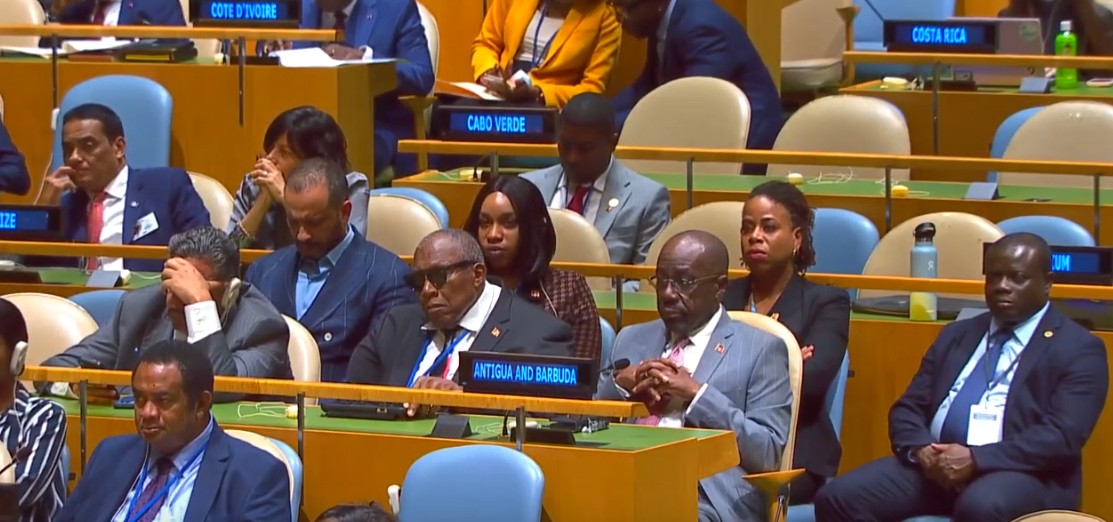The United States has announced its intent to withdraw from UNESCO, the United Nations cultural organization, a move emblematic of the Trump administration's ongoing efforts to distance itself from international entities. The State Department conveyed this decision, stating it will take effect at the close of next year, a reflection of President Trump’s deep-seated skepticism toward multilateralism and international institutions, particularly those affiliated with the U.N.
Tammy Bruce, a spokeswoman for the State Department, articulated the administration's viewpoint, declaring that sustained engagement with UNESCO does not align with U.S. national interests. She criticized the organization for espousing "divisive social and cultural causes" and for its focus on the U.N.’s Sustainable Development Goals, which she described as an ideological agenda contrary to the "America First" strategy.
The U.S. has experienced turbulent relations with UNESCO over numerous years, previously withdrawing under President Trump’s initial term before rejoining during President Biden’s administration. This recent withdrawal follows a review of U.S. funding and participation in the U.N. systems ordered by Trump, emphasizing claims of "anti-American bias" within UNESCO.
UNESCO's prominence stems from its role in designating World Heritage sites, having designated over 1,200 since its inception in 1972, including significant sites like the ruins of Palmyra in Syria and various national parks in the U.S. The organization also engages in educational initiatives focused on topics like literacy and equality for women, while setting standards related to environmental protection and the ethical guidelines for artificial intelligence.
In 2011, the U.S. ceased its financial contributions to UNESCO after the agency admitted Palestine as a full member, a development that compelled the U.S. to adhere to legislation mandating the cessation of funding to any U.N. body that recognized Palestine in such a manner. This funding absence severely impacted UNESCO, leading to drastic budget cuts.
The Trump administration reinforced its decision to exit UNESCO in 2017 due to claims of biases against Israel, with the U.S. retaining a position as a non-member observer following its departure. The Biden administration's subsequent re-engagement was driven by concerns that an absence of American representation had allowed nations like China to expand their influence within the organization.
Tammy Bruce, a spokeswoman for the State Department, articulated the administration's viewpoint, declaring that sustained engagement with UNESCO does not align with U.S. national interests. She criticized the organization for espousing "divisive social and cultural causes" and for its focus on the U.N.’s Sustainable Development Goals, which she described as an ideological agenda contrary to the "America First" strategy.
The U.S. has experienced turbulent relations with UNESCO over numerous years, previously withdrawing under President Trump’s initial term before rejoining during President Biden’s administration. This recent withdrawal follows a review of U.S. funding and participation in the U.N. systems ordered by Trump, emphasizing claims of "anti-American bias" within UNESCO.
UNESCO's prominence stems from its role in designating World Heritage sites, having designated over 1,200 since its inception in 1972, including significant sites like the ruins of Palmyra in Syria and various national parks in the U.S. The organization also engages in educational initiatives focused on topics like literacy and equality for women, while setting standards related to environmental protection and the ethical guidelines for artificial intelligence.
In 2011, the U.S. ceased its financial contributions to UNESCO after the agency admitted Palestine as a full member, a development that compelled the U.S. to adhere to legislation mandating the cessation of funding to any U.N. body that recognized Palestine in such a manner. This funding absence severely impacted UNESCO, leading to drastic budget cuts.
The Trump administration reinforced its decision to exit UNESCO in 2017 due to claims of biases against Israel, with the U.S. retaining a position as a non-member observer following its departure. The Biden administration's subsequent re-engagement was driven by concerns that an absence of American representation had allowed nations like China to expand their influence within the organization.






















